|
Peacock blue. That’s the color of the water surrounding the Tanzanian island of Zanzibar when the sun is directly above. Now, in the late afternoon, it’s more of a rich royal blue, and the graceful arc of a dhow’s sail is crossing in front of me. A palm tree’s lazy arms wave.
A Zanzibari woman named Hadigya, with a warm, patient smile, has given me my third back massage in five days here at Kendwa, a beach town on the island’s northwestern tip. She uses lemongrass-scented oil, and this time, cool water to soothe my sunburn. During the massage I thought, it’s the Zanzibar outside of the border of the postcard that I love. It’s the healing hands of Hadigya. And the conversation with the waiter Haz this morning about his life on the island—the way his eyes teared up when he told me how beautiful his three-year-old daughter is and how she can’t get enough chocolate. And the cats everywhere. They seem to belong to the buildings rather than the people, lying long and lanky in a slice of shade created by a step or a wall. Every evening at sunset in Stonetown, the island’s largest city, a group of teenage boys takes turns racing full speed at the cement ramparts that separate the land from the sea. They jump over the barrier and dive, flip, bellyflop, cannonball, or twirl into the water. As they launch into the air, their arms and legs flail wildly. There is usually no attempt at grace or form. It’s the happiest display of diving I’ve ever seen. They don’t ask for money from the crowd that gathers. They’re just plain having fun, playing with the rim of this island that’s their home. Stonetown’s alleyways and streets are slender and serpentine, and it’s a pleasure to see where they lead. It’s never anywhere that spectacular, but there are small surprises: A group of young, veiled Muslim girls playing on a stone wall, laughing, being tomboys. The frame of a wooden door so carved with flowers and Arabic script that no smooth surface is left. An old man sitting the shade who greets me with “Karibuni,” (welcome). We came to Zanzibar just in time for the Sauti za Busara music festival, a five-day celebration of African sounds that brings artists from all over the continent. A couple nights ago we saw a 90-something-year-old woman named Bi Kidude sing traditional taarab and unyago songs. Taarab is a Swahili genre that’s extremely popular on Zanzibar and often performed by a full orchestra at weddings. Unyago is associated with female coming-of-age ceremonies. The music’s rhythms are said to teach women how to please their husbands (in bed). Bi Kidude, who is so old she doesn’t even remember what date she was born, sang with passion and zest. The entire crowd gravitated toward the stage to take pictures of this still-burning star. In a way, Bi Kidude is a perfect representative of Zanzibar, an island that’s so ancient and rich with stories that it’s become a kind of legend. But it’s not a two-dimensional postcard. It’s still very alive. It’s a bit dirty. It’s hot. Teenagers go wild at night. Old women sing sultry songs. And I never want to leave.
6 Comments
A few days ago Mike and I took a camping safari through Tanzania’s Serengeti National Park and Ngorongoro Crater. Along with us in the Land Rover were a guide/driver, a cook, and three other travelers, including an Irishman named Michael who was severely visually impaired. He is not blind, but he cannot see the faces of people standing right in front of him. His girlfriend, Fionnoula, told me later that he had come along as a favor to her. What amazed both her and me was that on this safari, the wildlife was so close—just a few feet away at times—that Michael could actually see much of it well with the help of binoculars. When Michael couldn’t see something, like a flying flock of sacred ibis, he sometimes commented on how he could still hear their noisy call. This made me think about experiencing a safari through all the senses, not just vision. So here are five snippets of our trip through their sound, smell, touch, sight, and taste. 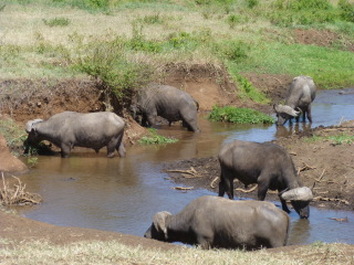 The squeaky sound of the grass as Cape buffalo pulled it from the ground and ate it in the middle of the night just outside our tent on the rim of the Ngorongoro Crater. The buffalos huffed through their noses as they chewed. The Cape buffalo is one of the most dangerous animals in Africa, known to gore even lions with its enormous horns. So we lay very, very still. 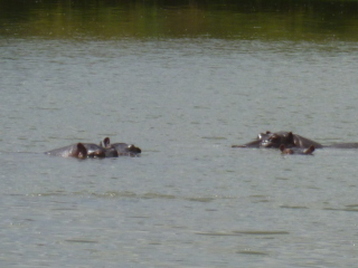 The smell of a pod of hippos wallowing in a pond. We could catch their stinky scent before we saw them. Let’s just say that they do more than just pee in the pool. Hippos themselves have a good sense of smell and hearing, but poor eyesight. I will not be wearing Eau de Hippo anytime soon. 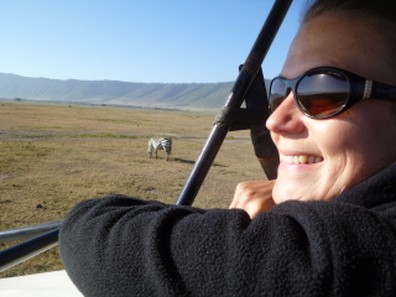 The feeling of the hot wind and sunshine on my face as I stood up and looked out of the roof hatch while we drove across the Serengeti. The word Serengeti is derived from the Maasai language and means “endless plains.” 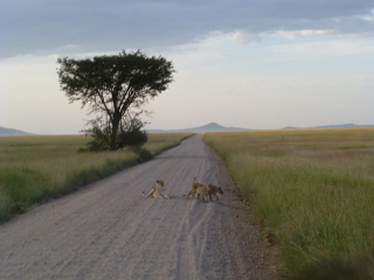 The sight of two lionesses and three cubs resting on the road directly in front of us around dusk. We skidded to a stop. Then we learned that we had a flat tire and had to get out of the vehicle directly in front of the lions. While we nervously watched these wild cats disappear into the grass as the sun set, our guide and cook fixed the car. 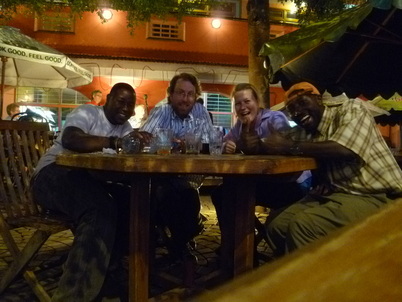 Celebrating the end of our safari with Daniel Mengoriki, left, and another new friend, Laurence Masawe, far right. The smoky, savory taste of nyama choma, or barbecued beef, which we had back in the city of Arusha with our new friend Daniel Mengoriki and his cousin Evans. The beef is served in small slices on a plate with little piles of sea salt on the rim. You eat it with your right hand, along with a little ball of sticky ugali, a doughy staple made from cornmeal and hot water. All best washed down with a cold Serengeti beer. |
Archives
July 2012
Categories
All
|
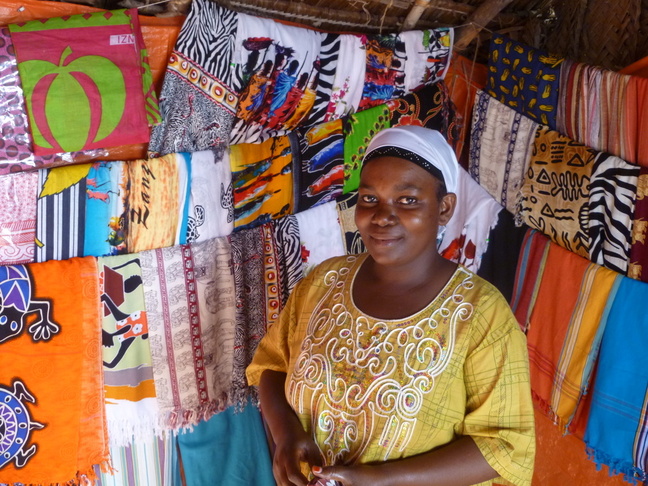
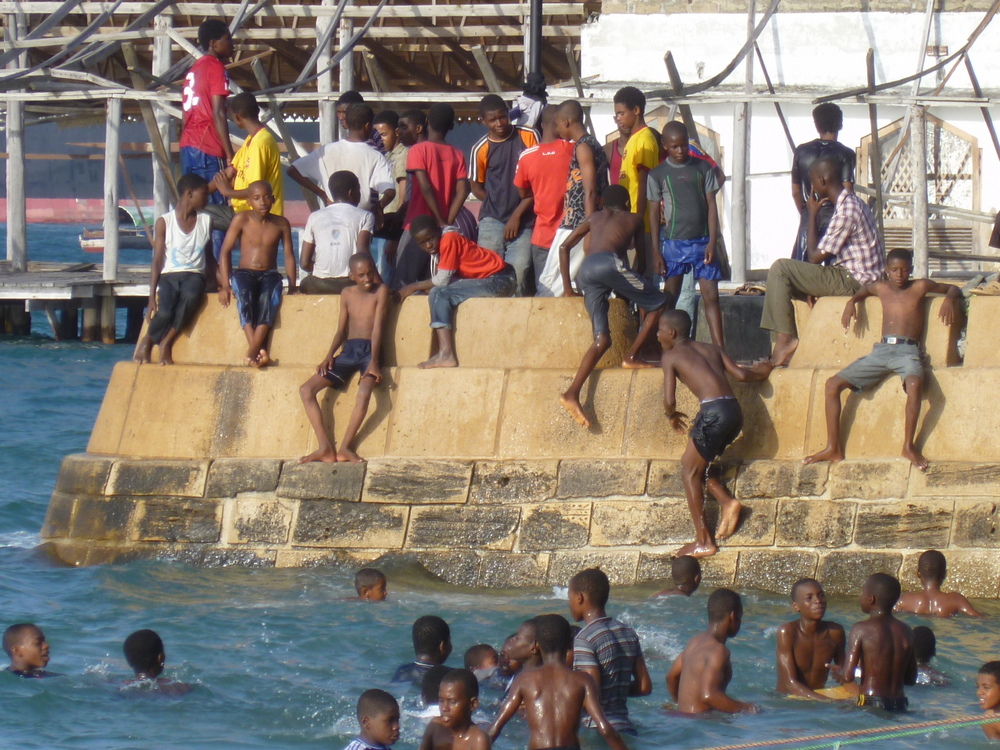
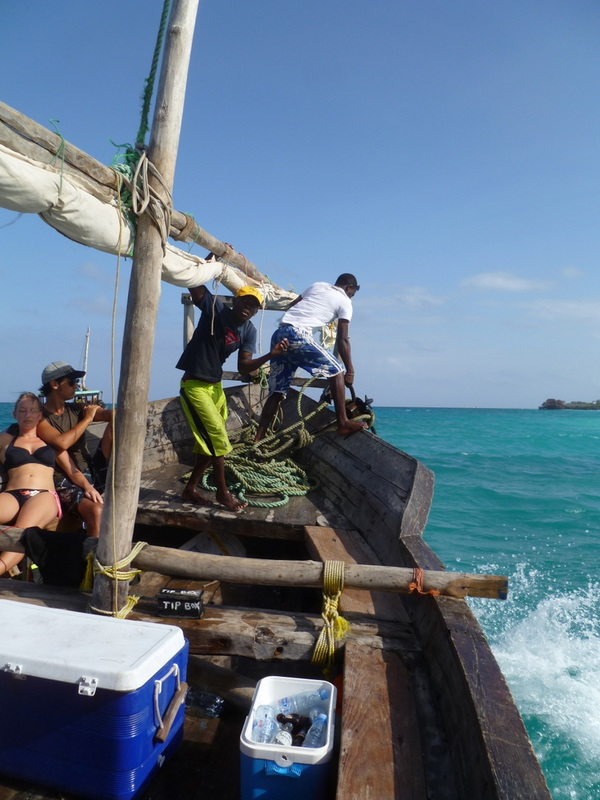

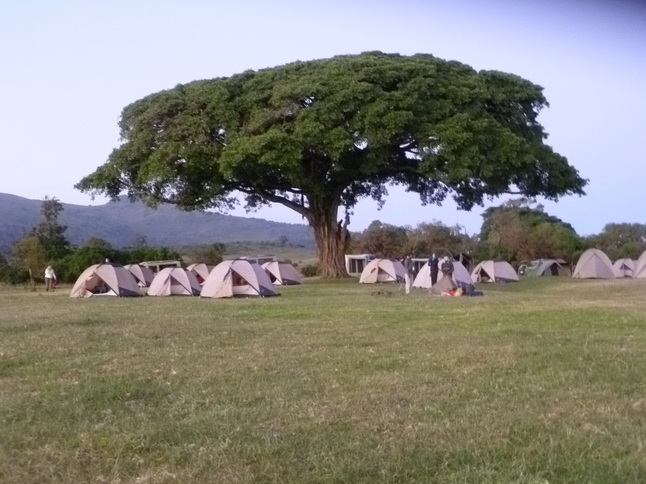
 RSS Feed
RSS Feed